Sovereign Nation Era Ends 1800-1827
Viewing Settler Colonial Policy Events OnlyClear
-
1801
Federal policy of land acquisition through Indian debt
President Thomas Jefferson actively encourages territorial governors to do all they can to acquire Indian...Read More
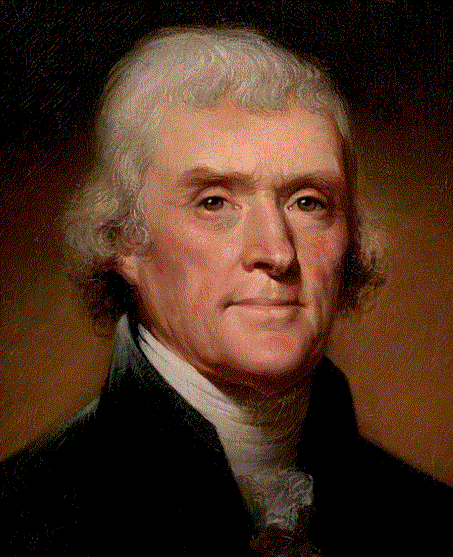
-
1802
Civilization campaign formalized in policy
Congress appropriates $10,000 for “civilization” of Indians.
-
1803
Louisiana “Purchase”
The U.S. “purchases” Louisiana from France. Indians of Louisiana now must contend with U.S.-imposed settler...Read More
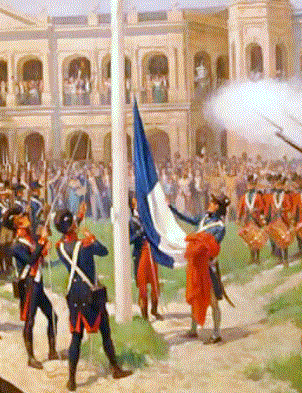
-
1803
Congress orders medical care for Native peoples
The federal government formally assigns the responsibility for providing medical care for Native peoples to...Read More
-
1803-1804
Indian removal policy progresses
Thomas Jefferson drafts a constitutional amendment authorizing Congress to trade land west of the Mississippi...Read More
-
1809
“Whiskey Treaty” of Fort Wayne signed
A process of fraud, embezzlement of lands, and use of alcohol is used to negotiate...Read More
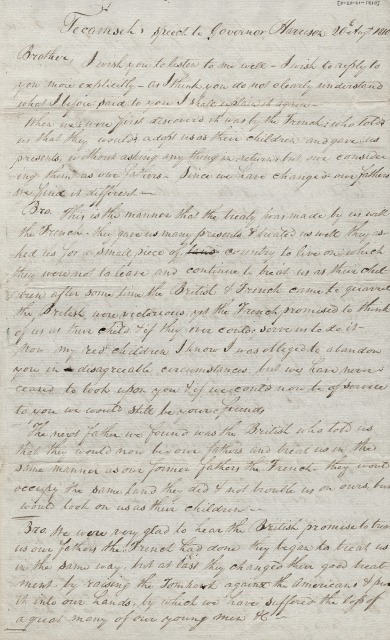
-
1815
U.S. prohibits ceding of Native lands to any other international power
This government policy narrows tribal negotiating power to leverage strategic alliances with other foreign powers....Read More
-
1816
U.S. restricts trading licenses with Indians to U.S. citizens
This impacts tribes’ ability to negotiate with foreign powers.
-
1817
First action to remove Indians from their lands
Cherokee land in Georgia is exchanged for territory in present-day Oklahoma, foreshadowing American Indian removal...Read More
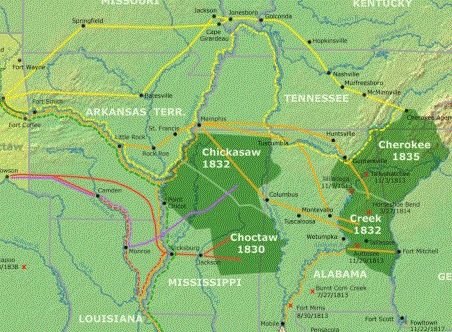
-
1818
First Alaskan hospital opens; refuses services to Alaska Natives
A new hospital in Sitka only serves Russian-American Company workers and settlers, not Alaska Natives...Read More
-
1819
U.S. pays missionaries to “civilize” Native Americans
Congress passes the Civilization Fund Act to promote “education” for Native Americans and to stimulate...Read More
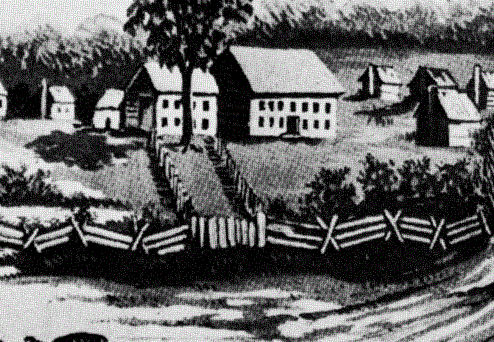
-
1820
First plans for Indian removal
With threats of genocide, the Treaty of Doak’s Stand is signed, and the Choctaw cede...Read More
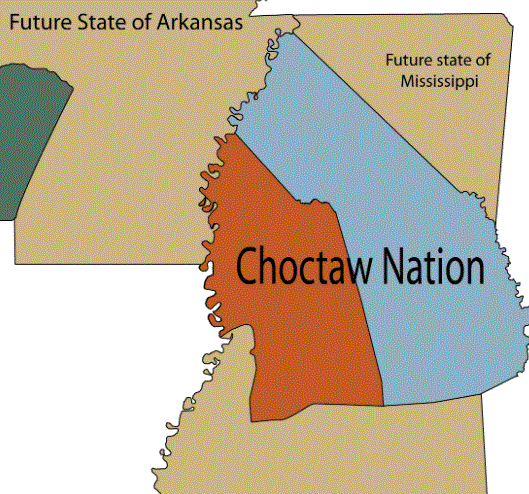
-
1822
Final official invitation for Indian leaders to meet with U.S. president
This is the last time tribal leaders receive an invitation to meet the president (James...Read More
-
1823
Supreme Court cites Doctrine of Discovery, rules American Indians do not own land
The Supreme Court decides the first of three major cases (the Marshall Trilogy) that set...Read More
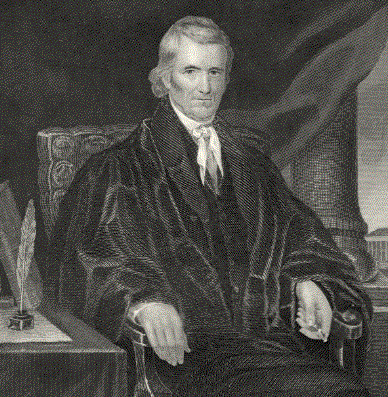
-
1823-1824
Bureau of Indian Affairs created within the War Department
The Office of Indian Affairs (later the Bureau of Indian Affairs) is created within the...Read More
-
1825
Andrew Jackson lays groundwork for reservation system
In “Indian Treaties, and Laws and Regulations Relating to Indian Affairs,” Jackson advocates for reservation...Read More